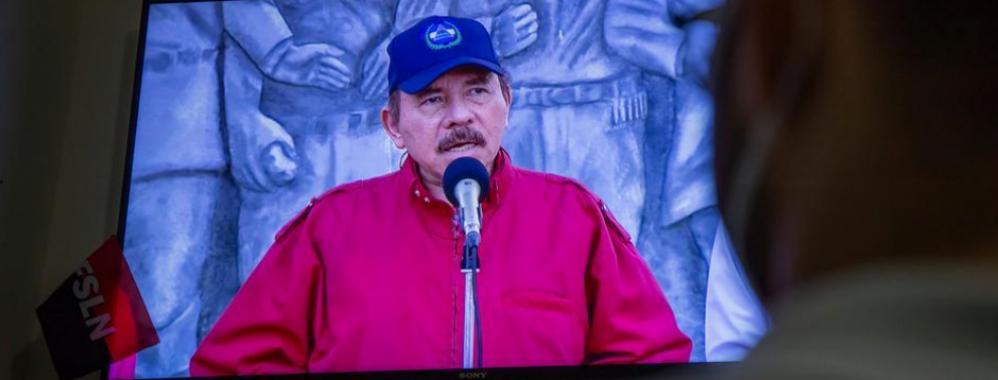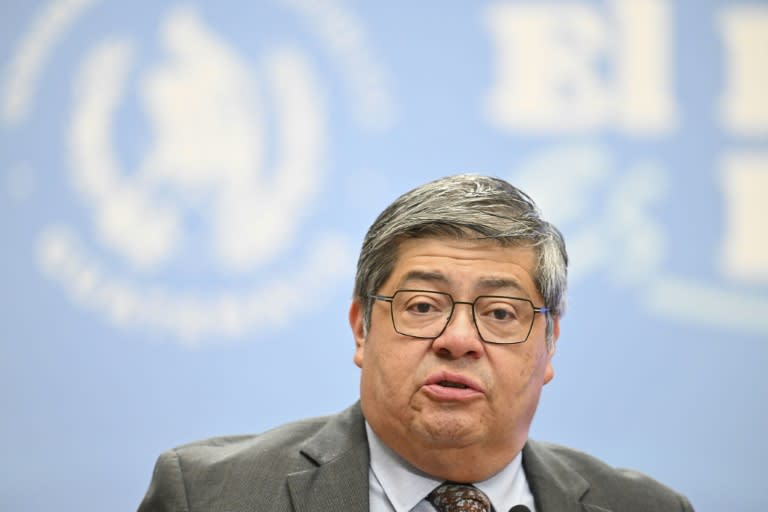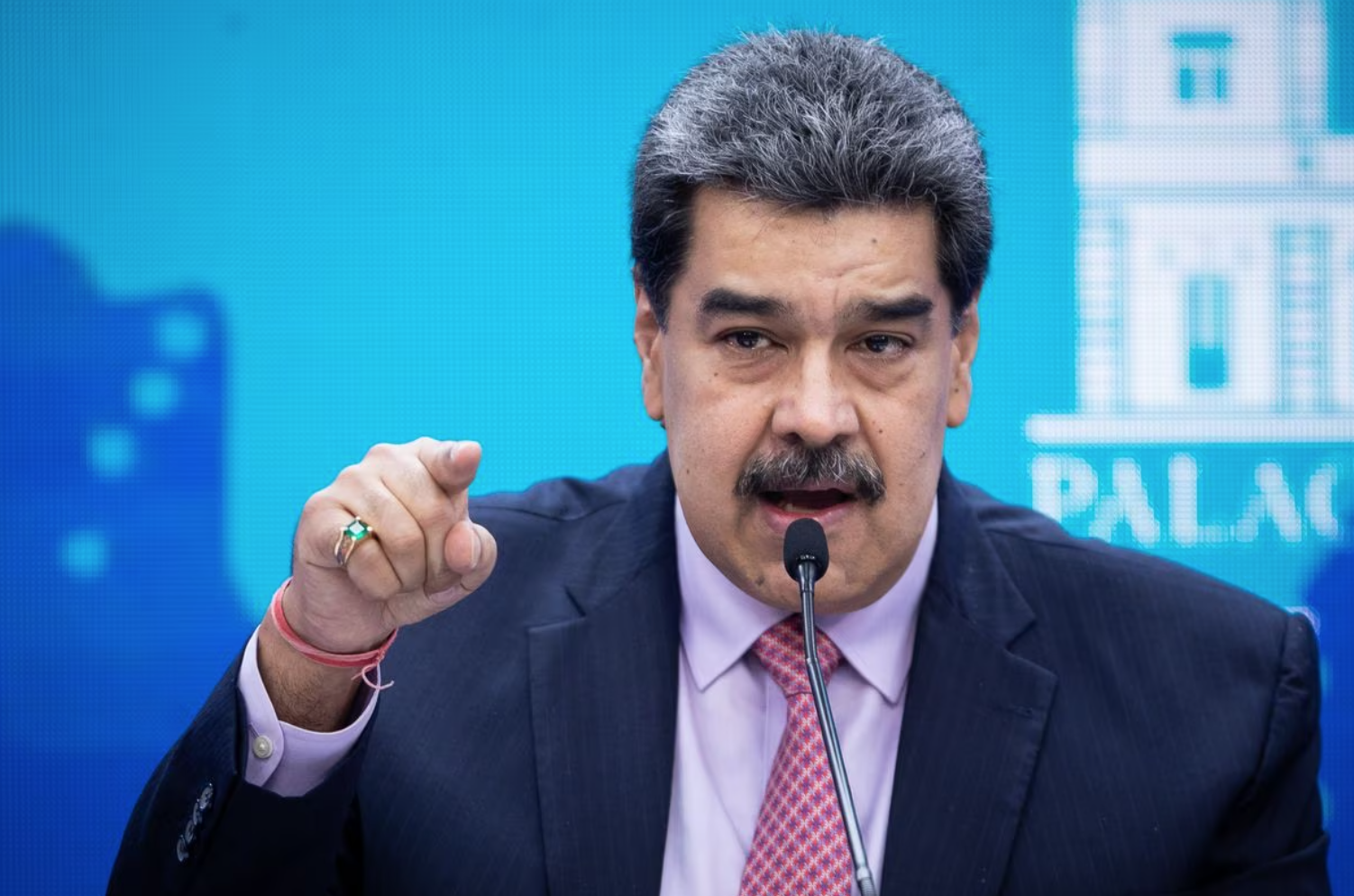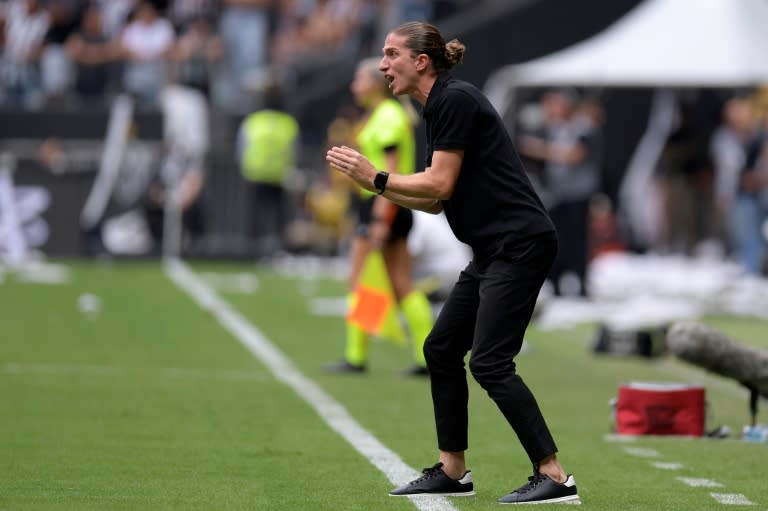Central America
EU, US widen Nicaragua sanctions as Ortega begins new term

AFP
Daniel Ortega was sworn in Monday as Nicaragua’s president for a fourth straight term as the EU and US tightened sanctions over impugned elections held in November with all his challengers in jail.
“Yes, I swear,” said strongman Ortega as he and his wife Rosario Murillo, who was re-elected vice-president, were sworn in at a ceremony attended by the presidents of Cuba and Venezuela and envoys from China, Russia, Iran, North Korea and Syria, among others.
Even before the event got under way, the European Union announced fresh sanctions against individuals it accuses of “undermining democracy” and human rights abuses in Nicaragua, including Ortega’s daughter and a son — both working as presidential advisors.
Others sanctioned “in view of the worsening situation in Nicaragua” were senior officials of the country’s police force and electoral body, said the EU.
In Washington, the US Treasury placed sanctions on six regime officials, including two generals, the defense minister, the head of the Supreme Electoral Council and officials of the telecommunications regulator, who allegedly ran a social media troll farm to help Ortega.
Travel restrictions were imposed on 116 individuals tied to the regime, including mayors, prosecutors, security and university officials “complicit in undermining democracy,” US Secretary of State Antony Blinken said in a statement.
In his inaugural address, Ortega, 76, mocked the sanctions, calling them a “decoration” for Brenda Rocha, the electoral council head, who was one of the officials sanctioned.
He called the US measures “cowardly” and “cruel (…) not just to Nicaragua” but also to Cuba and Venezuela, which have also been subjected for years to “brutal sanctions” that he said must cease.
– Russia and China –
In the months leading up to the November 7 vote, Nicaraguan authorities detained nearly 40 opposition figures, including seven would-be presidential challengers, assuring victory for long-time ruler Ortega.
As the international community rained opprobrium and sanctions on Ortega, he sought to improve ties with economic giants China and Russia.
Managua switched diplomatic recognition from Taiwan to Beijing, in return for which China reopened its embassy in the Central American nation and donated thousands of coronavirus vaccines.
Moscow, in response to outreach from Managua, provided the country with wheat, vaccines, even buses for public transport.
A firebrand Marxist in his youth, Ortega ruled Nicaragua from 1979 to 1990, after leading a guerrilla army that ousted US-backed dictator Anastasio Somoza.
Returning to power in 2007, he has won re-election three times, becoming increasingly dictatorial and quashing presidential term limits.
Ortega, with Murillo on his ticket, garnered 75 percent of the vote in November.
The election took place without independent international observers and with most foreign media denied access to the country.
The Nicaraguan parliament is dominated by Ortega allies, who also control the judiciary and electoral bodies.
Days before the election, Facebook announced it had closed a Nicaraguan government troll farm spreading anti-opposition messages.
Besides Rocha, the head of the Supreme Electoral Council, the European Union also imposed sanctions on the council’s deputy head and a senior official who was acting chief in 2018.
The country’s telecoms enterprise was also listed for its bid “to silence independent media” and spread “disinformation.”
– ‘Sham’ –
US President Joe Biden has slammed the vote as a “sham” and the Washington-based Organization of American States (OAS) said it was “not free, just or transparent.”
As sanctions were almost immediately announced by the US, EU, Canada, and Britain, Russia attacked the West for not recognizing the results.
“We consider this unacceptable and we strongly condemn such a stance,” Russian Foreign Minister Sergei Lavrov said in November.
The US State Department says Ortega’s regime continues to hold 170 political prisoners.
They include some 120 people who participated in anti-government protests in 2018 that were brutally repressed, causing more than 300 deaths and sending more than 100,000 people into exile, according to the Inter-American Commission on Human Rights.
Ortega insists the jailed are criminals and “terrorists” seeking to overthrow him with help from the United States.
Dozens of Nicaraguan exiles protested in neighboring Costa Rica on Sunday against Ortega’s inauguration.
The protest came on the same day that Nicaragua’s new parliament, also elected in November and dominated by Ortega’s left-wing Sandinista National Liberation Front, was officially opened.
Central America
Guatemalan police officer killed in mob riots over baby kidnapping

A police officer was killed during riots provoked by an enraged mob in a Guatemalan town following the kidnapping of a baby, the government reported on Wednesday.
The incidents began on Tuesday night and continued into the early hours of Wednesday in the town of San Vicente Pacaya, about 25 km south of the capital, according to Minister of the Interior Francisco Jiménez.
“There was an incident in San Vicente Pacaya where, unfortunately, a police officer died after being struck in the head with a stone. He passed away this morning,” Jiménez said in a press conference.
He explained that the unrest erupted following the arrest of two suspects in connection with the kidnapping of “a baby just a few months old,” including a woman with a criminal record.
Sports
Venezuela investigates 18 baseball players seeking asylum in Spain

The Venezuelan government announced on Wednesday that it is investigating the case of 18 baseball players who are “under the supervision of Spanish authorities” after seeking protection.
In a statement, Venezuelan authorities said they are working to determine whether this case involves “a possible human trafficking scheme,” though they have not provided any evidence of such a crime.
The Venezuelan government emphasized its commitment to protecting the country’s athletes while also denouncing the use of international legal frameworks by certain governments allegedly seeking to discredit the administration.
CNN reached out to Spain’s National Police for a response to Venezuela’s claims. According to Spanish authorities, the 18 young athletes—including two minors—arrived in Spain to participate in a series of matches but had already planned to apply for asylum. Authorities confirmed on Tuesday that they had begun interviewing the players to process their international protection requests.
The team’s coach addressed the situation in a TikTok video, refuting local media reports that he had abandoned the athletes. He asserted that the players chose to remain in Barcelona to secure the necessary permits to sign with other teams and that their decision was unrelated to any political motivations.
Sports
Filipe Luis debuts as coach in Copa Libertadores with Flamengo

A two-time Copa Libertadores champion with Flamengo during his playing days, Filipe Luis will make his managerial debut in the tournament this Thursday when the popular Rio de Janeiro club faces Venezuela’s Deportivo Táchira.
Placed in Group C alongside Táchira, Liga de Quito, and Argentina’s Central Córdoba, Flamengo starts as one of the favorites—a major challenge for the 39-year-old former player.
His early coaching career has been off to a strong start.
After retiring in 2023, Filipe Luis took over as Flamengo’s head coach on September 30. Just 41 days later, he won his first title, the Copa do Brasil. The year 2025 has already brought two more trophies: the Supercopa do Brasil, where Flamengo defeated Botafogo—current Libertadores and Brasileirão champions—3-1, and the Campeonato Carioca.
At 8:30 PM local time (00:30 GMT Friday), Flamengo under Filipe Luis will make its international debut at Estadio Pueblo Nuevo in San Cristóbal. Although Gerson, Uruguayan Giorgian de Arrascaeta, and Ecuadorian Gonzalo Plata are unavailable, the squad still boasts attacking firepower with Bruno Henrique and Everton.
-

 International5 days ago
International5 days agoSon of journalist José Rubén Zamora condemns father’s return to prison as “illegal”
-

 Central America2 days ago
Central America2 days agoU.S. Homeland Security Secretary urges Mexico to strengthen Guatemala border
-

 International5 days ago
International5 days agoMiyazaki’s style goes viral with AI but at what cost?
-

 Central America4 days ago
Central America4 days agoPanama police clarifies that Interpol alert for Martinelli is still pending
-

 International2 days ago
International2 days agoTrump urges Putin to reach peace deal
-

 Central America2 days ago
Central America2 days agoPanama grants Martinelli 72-hour extension to travel to Nicaragua
-

 International19 hours ago
International19 hours agoParaguay summons Brazilian ambassador over Itaipú espionage scandal
-

 International4 days ago
International4 days agoDeportation flight lands in Venezuela; government denies criminal gang links
-

 Central America17 hours ago
Central America17 hours agoGuatemalan police officer killed in mob riots over baby kidnapping
-

 Sports20 hours ago
Sports20 hours agoFilipe Luis debuts as coach in Copa Libertadores with Flamengo
-

 International20 hours ago
International20 hours agoMilei vows to make Argentina so strong that Falkland Islanders “choose” to join
-

 International20 hours ago
International20 hours agoElon Musk to step down as government advisor, per Trump insiders
-

 Sports19 hours ago
Sports19 hours agoVenezuela investigates 18 baseball players seeking asylum in Spain
-

 International20 hours ago
International20 hours agoICE agent’s arrest of suspect sparks controversy in Boston
-

 International20 hours ago
International20 hours agoÓscar Arias: Trump’s trade policies are a step backward















